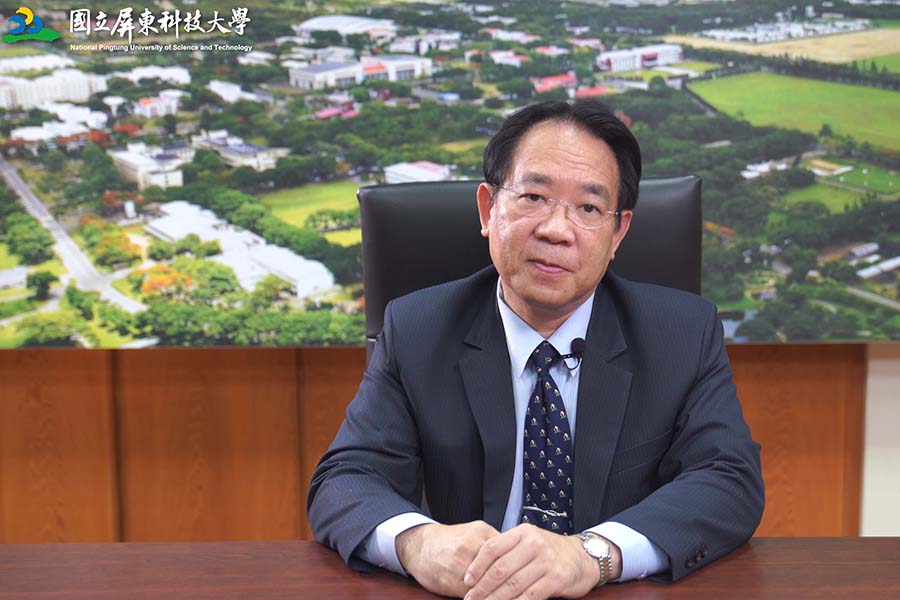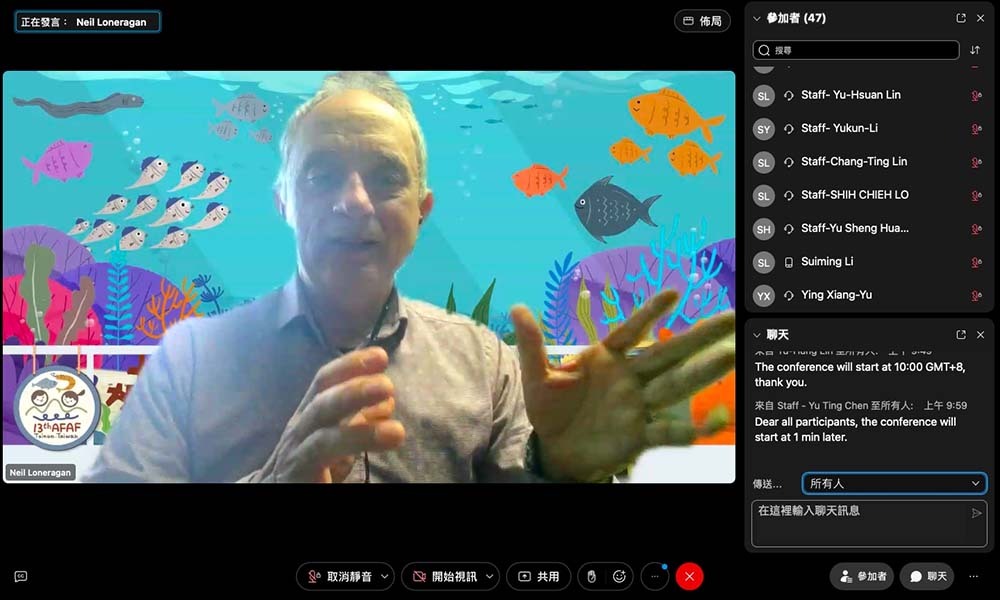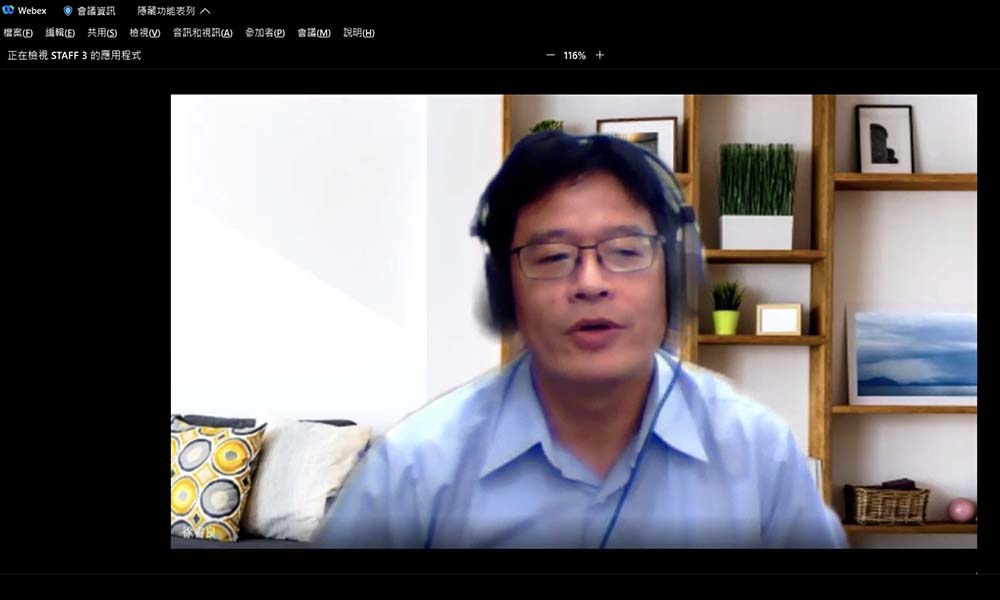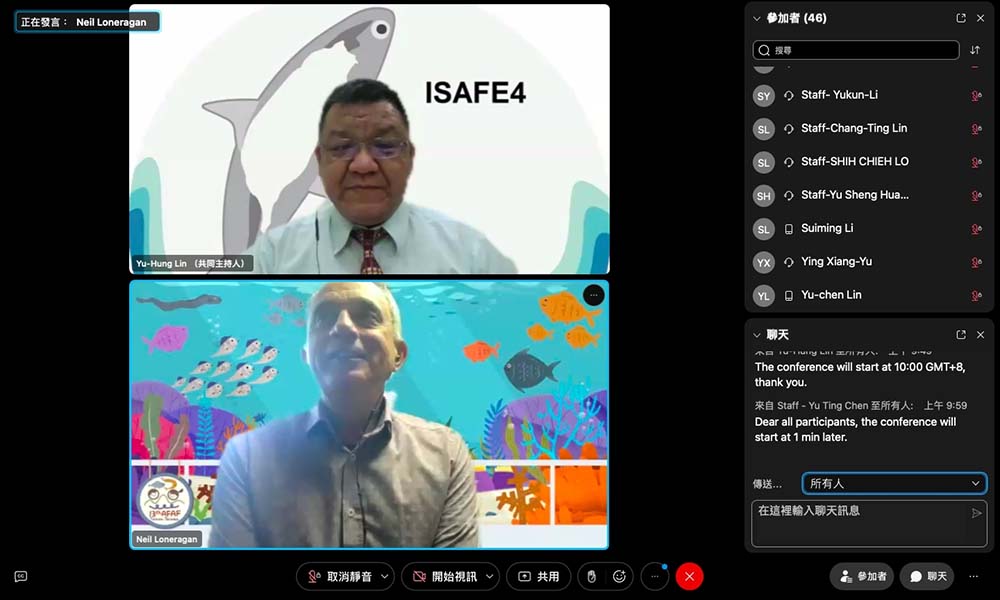Held once every three years, the International Symposium on Aquaculture and Fisheries Education (ISAFE) is one of the most important research conferences for the Asian Fisheries Society— and thanks to the efforts of Department of Aquaculture Professor Yu-Hung Lin, who serves as the Secretary General of the society’s Taiwan branch, NPUST was selected to serve as host of 4th symposium, which was held this year.
On October 7th and 8th, 2022, the event took place online, beginning with an opening ceremony attended by NPUST President Chin-Lung Chang, College of Agriculture Dean Jue-Liang Hsu, and many members of the Asian Fisheries Society, including the 14th (current) President Neil Loneragan, 13th Asian Fisheries Society President Alice Joan G. Ferrer, and society’s Social Science Network chairperson, Marieta Baňez Sumagaysay—to name a few.
In his remarks, NPUST President Chin-Lung Chang said “we are glad that so many are able to participate in the 4th International Symposium on Aquaculture and Fisheries Education. During this academic conference, aquaculture and fisheries research, educational resources, and industry conditions of in various countries will be shared through speeches and oral reports. We hope to see the enhancement of academic progress and that in the future more elite talent can be cultivated for aquaculture and fisheries industries.”
Chairman of the Organizing Committee, Yu-Hung Lin, said “in recent years, Taiwan and many Asian countries have been experiencing talent gaps in aquaculture and fisheries. In response, the policies of various countries have aimed to encourage use of AI and automated machines to solve the problem of labor shortages. This is also an important goal for long-term education and research strategies at NPUST.” For this reason, following discussions with the committee, the NPUST Department of Aquaculture selected the theme of “SMART Aquaculture and Fisheries Education” for the symposium, and hopes are that Taiwan will lead the effort to apply smart technology and automation to aquaculture and fishery industries.
Speakers provided lectures on various topics during the symposium including Yuh Tzean, Vice-Dean of the NPUST Office of International Affairs, who shared on NPUST’s achievements in the integration of educational aquaculture resources and international cooperation. NPUST’s Department of Aquaculture alumnus Dr. Chun-Chou Yang, who currently serves as chief aquaculture consultant to Saudi Arabia, shared on Saudi Arabia’s educational resources and their need for human resources in this area.
Dr. Yiyen Tseng, the first Taiwanese to win the IAEA Marie Sklodowska-Curie Fellowship in the aquaculture category, shared on current situation of European aquatic education resources and scholarships while Assistant Prof. Byadgi Omkar Vijay of the International Program in Ornamental Fish Technology and Aquatic Animal Health spoke on aquaculture education in India. Additionally, Dr. Hsin-Wei Kuo of the General Research Service Center introduced practicums on AI applications in aquaculture, and Assistant Prof. Yu-Sheng Wu of the Department of Aquaculture shared on overseas internship programs from the past. Finally, Yen-Chun Lee highlighted the results of the Ministry of Education University Social Responsibility projects previously executed by the Department of Aquaculture.
The goal of the symposium is to promote the development of aquaculture and fishery technology and integrate educational resources in the Asia-Pacific region. The platform allowed researchers and teaching staff from in the diverse countries to discuss and share experiences, and it also exposed students to more information about aquaculture and fishery activities around the world. With the support of the National Science and Technology Council, NPUST President Chin-Lung Chang, and the College of Agriculture, this year’s symposium enjoyed 2 keynote speeches, 5 special lectures and 24 general oral presentations with participants coming from Taiwan, the Philippines, Thailand, Malaysia, China, Vietnam, Indonesia, Spain, Saudi Arabia, India and Australia.




